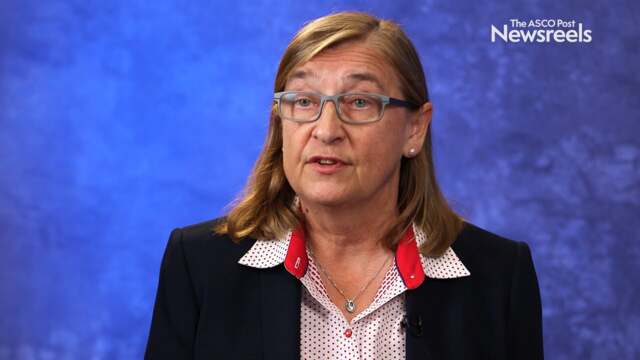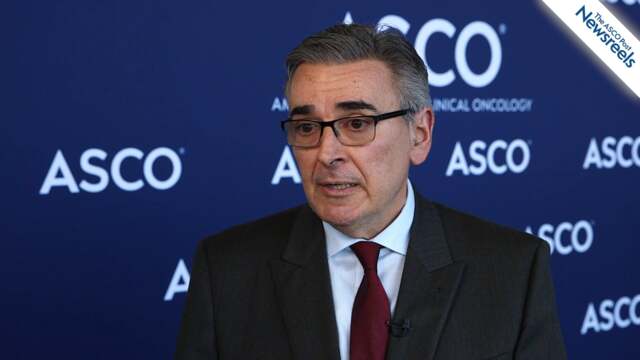Robert J. Kreitman, MD, on Hairy Cell Leukemia: Results From an International Study
2018 ASCO Annual Meeting
Robert J. Kreitman, MD, of the National Cancer Institute, discusses findings on moxetumomab pasudotox in heavily pretreated patients with relapsed or refractory hairy cell leukemia (Abstract 7004).
Martee L. Hensley, MD, of Memorial Sloan Kettering Cancer Center, discusses phase III study findings on adjuvant gemcitabine plus docetaxel followed by doxorubicin vs observation for uterus-limited, high-grade leiomyosarcoma (Abstract 5505).
Helena Margaret Earl, MBBS, PhD, of the University of Cambridge, discusses phase III study findings on 6 vs 12 months of adjuvant trastuzumab in patients with HER2-positive early breast cancer (Abstract 506).
Nathan A. Pennell, MD, PhD, of the Cleveland Clinic, discusses the economic impact of next generation sequencing vs sequential single-gene testing modalities to detect genomic alterations in newly diagnosed metastatic non–small cell lung cancer (Abstract 9031).
Joseph A. Sparano, MD, of Montefiore Medical Center, discusses phase III study results on chemoendocrine treatment vs endocrine treatment alone in hormone receptor–positive, HER2-negative, node-negative breast cancer and an intermediate prognosis 21-gene recurrence score (Abstract LBA1).
Bernard J. Escudier, MD, on RCC: Results From the IMmotion151 Trial
Bernard J. Escudier, MD, of Gustave Roussy, discusses patient-reported outcomes for atezolizumab plus bevacizumab vs sunitinib in treatment-naive metastatic renal cell carcinoma (Abstract 4511).





